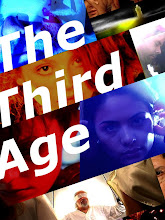Watching Brutal Movies
I saw Million Dollar Baby today. It was a pretty impressive movie, it really engrossed you in the story. I, and not just me, pretty much every critic, feel like Clint is one of the best filmmakers in making classic Hollywood films, in the sense that everything is designed to just immerse you in the story. There's no showy shots or effects, nothing that really lets you know someone is directing the movie. Now, I love directors that make their style known, people like Lynch and Wong Kar-Wai alwyas let you know they're directing the movie, and there's always an almost artificiality. Paul Thomas Anderson does this too, with his absurdly long tracking shots that draw attention to his form, but overall, I feel like it's more of an Asian thing. WKW and other stuff, like Hero, is just so beautiful, you at once enjoy the story, but are also just awed by the visual.
Anyway, Million Dollar Baby just lets you coast along in the story, and it's a really good story, but it's not quite a great film. That said, I would reccomend it. However, I don't really feel like it's a movie I need to discuss. What it did do was get me thinking about why we see a certain kind of movie, a type of movie I will call the brutal movie.
What is a "brutal" movie? I think it's one that almost presents itself as a challenge to the viewer. It's the type of movie that people will say you have to be in a certain mood for. It's the kind of movie that is more something you "have to see" than is something that's enjoyable.
There's a number of movies that I really love that I was classify as "brutal," most prominent among them are Requiem for a Dream, Irreversible, Oldboy and Twin Peaks: Fire Walk With Me.
A basic question is, why would you watch something that is really depressing, and so dark it's not really enjoyable in the traditional sense? A film like Magnolia is really dark, but it gives you a happy ending, the above films pretty much don't. There may be a little light at the end of the tunnel, but it's more of a things are so messed up now, they can only get better.
I think the reason I like that type of film is that it's such a visceral experience. Each of them is really immersive, and just traps you in this world, it may be an awful world, but to be able to go there and experience it is something unique.I feel like Requiem and Irreversible really have a point to make, and the violence is a oart of that. It may seem like a ten minute long rape scene is gratuitious, but it's needed to show you just how disgusting, and affecting, the act is. If you cut away, you're not going to get the same impact. Similarly, in the beginning of the film, you need to see the violence of the revenge act, because if you didn't, it wouldn't seem so abhorrent. By juxtaposing the two acts of extreme violence, Gaspar Noe shows us that violence only breeds more violence, and that ultimately, revenge is pointless. Requiem does the same thing with its ending montage showing the effect of drugs. Seeing our main characters completely degraded really shows that maybe addiction is not such a good thing.
The main reason I love Irreversible and Requiem is the filmmaking. Noe's ridiculously long takes, or Darren's hip hop montage editing are completely unique, and perfectly suited to the story. I guess these sort of movies aren't going to have any sort of box office hopes, so the directors can go as crazy as they want. But, sometimes the darkness is needed. The reason the last scene of Fire Walk With Me is so cathartic is because it comes after so much darkness. Without things getting really bad, the good has no meaning.



